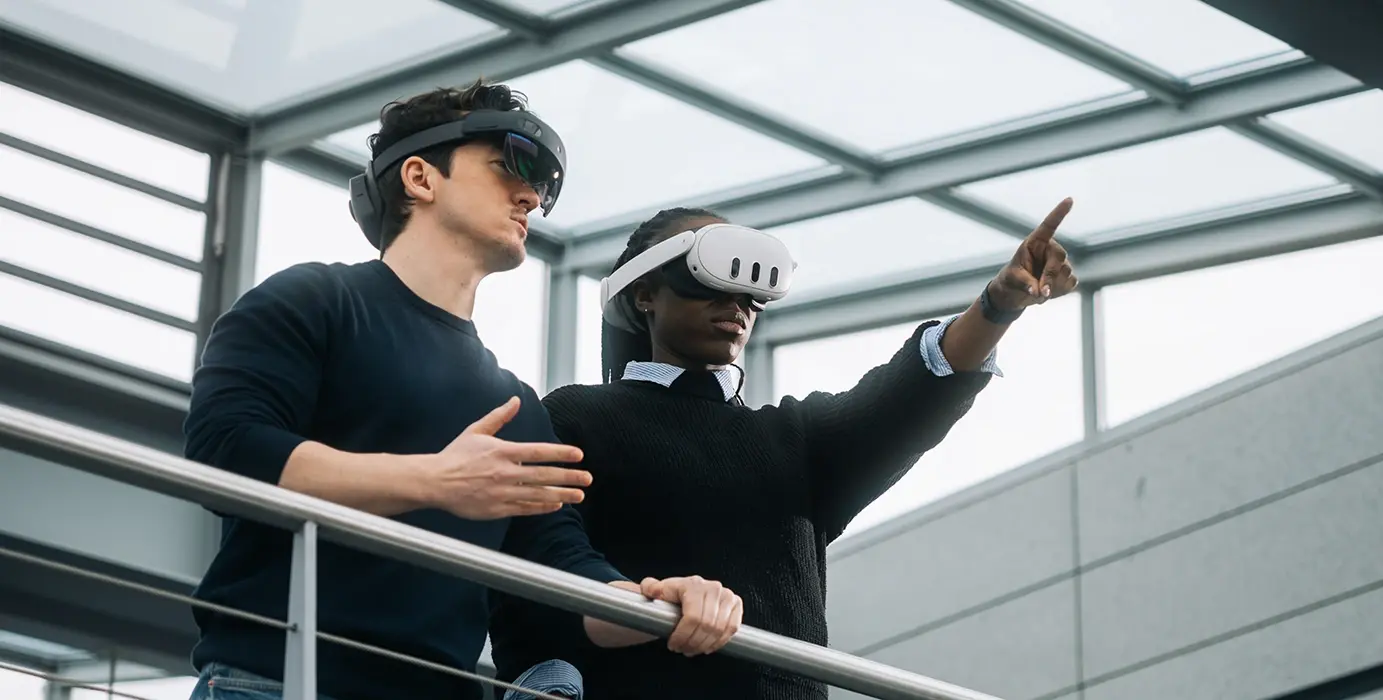The Complete Beginner’s Guide to AR, VR, and XR in Industry
What XR Really Means XR (Extended Reality) is an umbrella term for Virtual Reality (VR), which creates a fully digital environment, Augmented...
Table of Contents
Human ability to imagine objects that are not physically present is limited. It is even more difficult for us to mentally place them in an existing environment. How often, for example, has it happened to you that a newly purchased piece of furniture was too large for the intended space?
In construction planning and architecture, this problem is amplified. Whereas in the case of the previously mentioned piece of furniture, only a single part has to be inserted into an existing space, in architecture we are often dealing with entire buildings in which floors, rooms and objects stand in a relationship to one another; and of course, the building itself as a whole must also fit into its surroundings. In this process, our lack of imagination can lead to mistakes with far-reaching consequences.
This is where technology helps our imagination tremendously. Augmented reality (AR) in combination with Building Information Modeling (BIM) ensures that we can “actually” see all objects and relationships.

Building Information Modeling (BIM) is to be understood as a digital method that is used throughout the life cycle of a building. In this process, all data and information related to the construction is stored and mapped in a BIM-enabled software.
Augmented reality is the computer-aided expansion of reality perception. Specifically in construction planning, the BIM models are “projected” into the real environment.
AR applications for construction planning help our imagination tremendously. They support the entire decision-making process both on the side of the construction planner and on the side of the client. AR glasses can be used to better present and understand the planned building. Thus, decisions in the early planning phases can be made more easily and more correctly, which reduces planning and construction costs accordingly.
DI Dr. Timur Uzunoglu, Managing Director convex ZT GmbH: “Especially in the case of existing building conversion, it is advantageous if you can visualize the superimposition between the model and reality.”
At convex ZT GmbH, we use AR technology from the design phase to operation. With Hololight’s Hololight Space software, we bring BIM planning closer to clients and enable greater planning transparency. Building owners feel more involved in the planning process during our AR-assisted planning meetings and can make better decisions. We make AR inspections together with the builders directly on site. These AR inspections provide a direct impression on site in real time and help to weigh alternatives against each other. In revitalizations of existing buildings, it is often challenging to bring the new structures into a functioning harmony with the existing buildings, and AR helps very well there, too.

What XR Really Means XR (Extended Reality) is an umbrella term for Virtual Reality (VR), which creates a fully digital environment, Augmented...

Augmented Reality is already delivering measurable results in product development: from faster design cycles to fewer errors and lower costs. But...